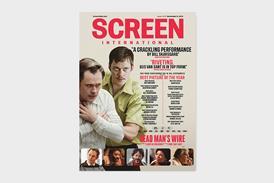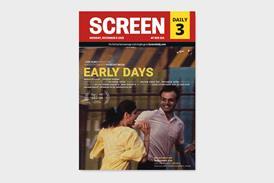
When Hong Kong’s Filmart announced last year that it was moving online for a third time, some wondered if it was an overly cautious move.
Four months later, with Hong Kong in the fifth wave of the virus and Filmart Online set to run March 14-17, it has proved a canny decision.
“I didn’t have a crystal ball but I did have the past two years of experience,” says Peggie Liu, associate director of the Hong Kong Trade Development Council (HKTDC), organiser of Asia’s largest content market.
Liu spoke to Screen about meeting the challenges of a third virtual edition and why companies from mainland China are returning to the market.
When you first had to postpone Filmart back in early 2020, could you ever have imagined that we’d still be in this position two years later?
It’s a pity. To me, entertainment is a very human centric thing. Face-to-face discussions and meetings are very important. But we see light at the end of the tunnel and I think we’ll be able to open up and see each other again very soon.
Why did you take the decision to go online for a third consecutive edition, back in November?
Well, I didn’t have a crystal ball but I did have the past two years of experience. One very important consideration is the fact that Filmart is truly international in nature, and most of our exhibitors and buyers are from beyond Hong Kong. So, at that time, I remember we evaluated the situation, especially in Asia. We decided that if travel restrictions were lifted for at least some of our target markets then we will go ahead. But at that time, we looked at the situation and found that it may not be the right moment. We made the decision early because after accumulating two years of experience we knew that our exhibitors would like to know in advance so that they can better prepare themselves whether we are doing physical or online – especially for our Hong Kong exhibitors.
What is your mood going into this year’s Filmart?
These past few weeks in Hong Kong, we’ve had a record number of cases. This is already the fifth wave so I don’t see any panic in the office but it is also the most serious. We organise a lot of exhibitions, so we have accumulated experience of handling sudden changes. But to be honest, the mood for me is that I really miss my friends. I miss the time at Filmart when I can say hi to everybody, go to every pavilion to sit down and talk. I look at the posters, I check out their new productions. I really miss that atmosphere.
How many exhibitors are you aiming to reach this year?
We expect around the same or even more than last year. We had 677 exhibitors in 2021. This year, there’s a good chance that will exceed 700. One outstanding phenomena this year is that our Mainland China friends are coming back. Last year we had about 130 companies. This year we expect more than 200. We have pavilions from major film and TV production bases like Guangdong, Hangzhou, the Hunan province, a big delegation from Beijing. Elsewhere from Asia, the Thai pavilion will be here, the Philippines, Taiwan and we have 11 companies from India that have signed up.
How do you explain that sharp increase?
Two years ago, the Mainland companies were very tech savvy but entertainment companies there didn’t used to sell content online. Also, after all these years, Filmart is starting to develop into more than just a marketplace and is no longer purely for buying and selling. The market is more for connection and to brainstorm new initiatives. Previously, the Chinese companies still wanted to meet face to face and doubted the online platform could help. But they came as visitors and realised it is the way to go. Over the past year, a lot of markets went online and it is now the new normal. Although I must emphasise that I still believe in physical events.
How many buyers do you think will attend?
Again, about the same. Most buyers register at the last minute so I expect numbers to go up but at the moment we have registered more than 3,000. One very true thing about the online platform is that our buyer profile is now more diverse because we were able to attract buyers from more distant regions and cities. When we have the physical event, it can be quite costly for them to come over. But online, we have a more diverse profile of buyers.
Which key clients have already confirmed attendance?
Most of the Hong Kong major companies are exhibiting and from China we have major companies like Wanda, Mango TV from Hunan, CJ from Korea – all the major companies.
What new features can we expect on the Filmart Online platform?
With the online platform we realised search is all important. We have invested to enhance that functionality. We will use software that uses an algorithm to automatically recommend or filter relevant information for every buyer that has registered. This is very meaningful because hopefully, through this new function, we can help more.
Let me put it this way. At the physical market, you walk around and can find things yourself. But online you have to click everything, which is time consuming, especially working from home where there are a lot of distractions. So our main purpose is to help buyers more easily identify what they want. This is why we have made further investment to enhance this kind of matchmaking.
What do you think are the challenges for the industry for the year ahead?
The industry is transforming. It started a long time ago and has been further pushed by the pandemic. Especially now, at this moment in Hong Kong, the theatres are closed. This affects the investor because their production can’t be released or shooting is on hold. I think investors are being very careful with new investments or productions. That’s affecting the industry as a whole.
Other than that, there is the emergence of OTT platforms – some succeeded and some dropped out – and competition from other entertainment versus traditional. Challenges bring new opportunities but it’s not been easy for the industry. Even for me, as a marketplace organiser, we have to adapt to the changes every year. I must make some advancement every year and look at the data to examine how much networking we’ve done online, for example. So I am learning new things and adapting to the new normal. The same can be said for the film industry.
Why is it important that we get back to physical markets and when do you think that might be?
After two years, a lot of companies are getting used to making deals online. But they have all said to us they want to come back to a physical market. That is a very clear message from all our exhibitors. While discussions can be had over zoom, you can’t really have a coffee or cocktail or hang out, and that’s where ideas come up. Entertainment is all about creativity. It’s also about investment, knowing the right people, identifying the right partner. This is done better when you are face to face.
Entertainment is not just like not like buying a pan from a supermarket. Entertainment is not tangible. It’s about ideas. That comes from discussion and relationships. Atmosphere is also important. When you sit down in our convention centre or by the beach in Cannes, and have a discussion over breakfast or a drink, it’s a very different experience. That’s the entertainment industry and that’s where ideas are born.
























No comments yet